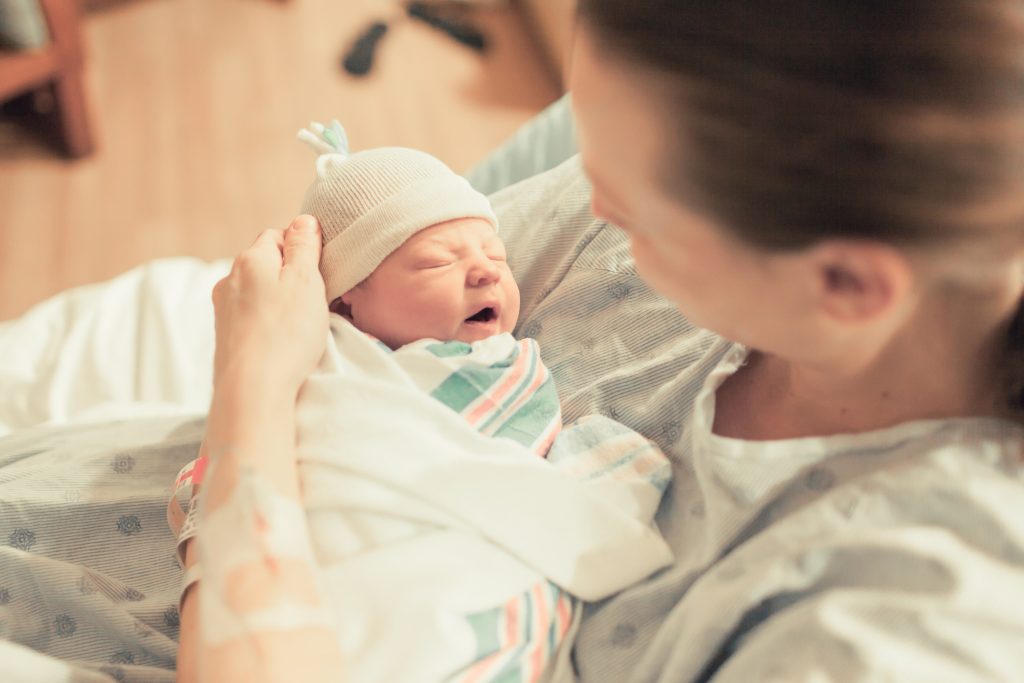Timely Access to Critical Care Transport for Northern Ontario’s Most Vulnerable Patients
by Communications and Engagement
 TBRHSC will implement their specialized transport team using a phased approach, starting with 24/7 coverage to stabilize and transfer newborns and infants up to 12 months of age, with a future goal to transport a larger paediatric population.
TBRHSC will implement their specialized transport team using a phased approach, starting with 24/7 coverage to stabilize and transfer newborns and infants up to 12 months of age, with a future goal to transport a larger paediatric population.Originally published in Milestones, a publication by the Provincial Council for Provincial & Child Health
Access to timely critical care transport services between hospitals is essential to achieve improved health outcomes for newborns and children requiring urgent or emergent critical care services. Currently in Ontario, the inter-facility transport of critically ill newborns and children is provided by highly specialized hospital-based transport teams situated at four tertiary paediatric health sciences centres in Hamilton (McMaster Children’s Hospital, MCH), London (London Health Sciences Centre, LHSC), Ottawa (Children’s Hospital of Eastern Ontario, CHEO) and Toronto (SickKids), as well as the Child Health Transport Team based in Winnipeg, Manitoba. Hospitals in remote and rural areas of Northern Ontario, especially those inaccessible by land, are reliant upon air transport services provided by Ornge, with or without a specialized transport team depending on a patient’s needs.
To address existing system gaps and priority issues related to transport in Northern Ontario, the Provincial Council for Maternal and Child Health’s (PCMCH) Transport Committee convened a Northern Transport Strategy Work Group in 2020, consisting of 26 stakeholders directly and indirectly involved in the transport of urgent and emergent pregnant, newborn and paediatric patients in Northern Ontario. The Work Group recommended that a transport team be developed and positioned in the north to ensure that urgent and emergent high-risk newborn and paediatric patients receive care closer to home and, more importantly, receive a rapid response for transport to a tertiary centre in an emergency. Thunder Bay Regional Health Sciences Centre (TBRHSC) is the designated hospital site for this new specialized transport team.
“Having a specialized transport team based in Northern Ontario will ensure that children in the north will receive timely access to advanced care,” says Crystal Edwards, TBRHSC’s Director of Women and Children’s and Mental Health Programs and Director of the Transport Team. “The work we’re doing to establish this team moves us closer to aligning care in the north with other areas in the province. It will also allow for relationship-building between the team and the regional hospitals and remote nursing stations, which could result in some skills development.”
Currently, critically ill newborn and paediatric patients in Northern Ontario must wait for a specialized team to travel from Southern Ontario or Winnipeg to pick them up and transport them. Data from 2018 to 2021 shows that Ornge transported an average of 784 infants and children per year from northern facilities to tertiary hospitals. In addition, while up to four hours has been deemed the desired target for a specialized team to reach a patient, data indicates that team response times have ranged between six and eight hours. Once the team has reached the patient and stabilized them, it will also take some time before the patient arrives at a tertiary hospital in the south. The transport team based out of TBRHSC is expected to significantly decrease these wait times.
The progress of this initiative has been a team effort across the province. “TBRHSC has received overwhelming support from our partners,” Edwards says. “PCMCH supported the development of the proposal for this new transport team, as well as including TBRHSC as members of PCMCH’s Transport Committee and related working groups. Ornge has increased our understanding about requirements for aeromedical certifications and training and have also assisted in the procurement of standardized specialized transport equipment. In addition, Ontario’s four tertiary hospitals (MCH, LHSC, CHEO and SickKids) have offered support by sharing policies, procedures, medical directives and operational guidance. CHEO allowed members of the TBRHSC Transport Team to join online theory courses, and SickKids provided opportunities for the TBRHSC team to work alongside their teams to obtain hands-on training.”
Progress to Date
TBRHSC will implement their specialized transport team using a phased approach, starting with 24/7 coverage to stabilize and transfer newborns and infants up to 12 months of age, with a future goal to transport a larger paediatric population.
“We have hired 11 Registered Nurses (RNs) and eight Registered Respiratory Therapists (RRTs) who will work as a team, with one RN and one RRT assigned to each transport,” explains Edwards. “The team is currently involved in significant training that will span eight months and include theory and certification courses and simulation sessions. The team will continue to participate in hands-on training with Ornge paramedics and the SickKids transport team and will undergo formal evaluations by way of Objective Structured Clinical Exams.”
Development and training of the team, as well as equipment sourcing, will continue into 2024. PCMCH looks forward to sharing more information on this initiative’s progress in the coming year.